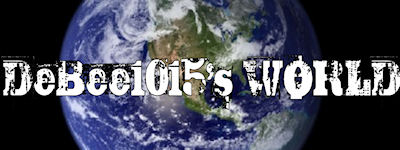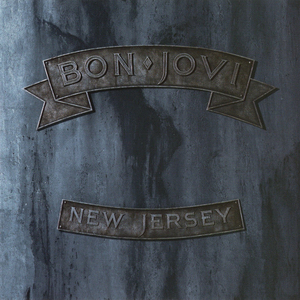Good interview with Jon.
Jon Bon Jovi is standing up.
The only reason that's news is because he blew out a calf muscle on stage July 9 during a concert at New Meadowlands Stadium in his home state of New Jersey.
"I got another leg," he told the crowd. "I don't need this one."
He hobbled back to the microphone and finished the show with "Livin' on a Prayer."
"The leg's back now, miraculously, with all the rehab I've had," Bon Jovi told the Sun-Times in an interview Wednesday. "If I was a football player, I'd say I'm 'probable' to play. Really I've just nursed all the sympathy I could get at home, and now I've gotta go back to work."
Work is a prominent theme on his latest record, "The Circle." Bon Jovi's job has looked the same for nearly 30 years -- playing one massive stadium show after another. This weekend, he returns to Chicago for two nights at Soldier Field. After that, more stadiums and arenas in 30 countries for the next two years. Again.
BON JOVI
with Kid Rock and 7th Heaven (Friday)
with Kid Rock and the Worsties (Saturday)
7 p.m. Friday and Saturday
Soldier Field, 1400 S. Museum Campus Dr.
Tickets: $36.50-$500; ticketmaster.com (Friday is sold out)
The Circle Tour already is the top-grossing tour in North America. Bon Jovi's last tour also had that distinction, in 2008. Amid all the reports of canceled shows and trimmed-back tours this summer, Bon Jovi's stadium gigs emerge as one of the few winners. Thus far in 2010, he's played 38 shows, selling half a million tickets and banking $52.8 million, according to Pollstar.
Since long before the band hit it big with the 1986 album "Slippery When Wet" ("Livin' on a Prayer," "You Give Love a Bad Name," "Wanted Dead or Alive"), Bon Jovi has been playing the big venues. "It's what we've done since the inception of this band," he said during a conversation that reflected on the first stadium shows, the new music business and writing a song about Jennifer Hudson.
Q. These tours are clearly huge undertakings. Do you have a limit? What would be too big for you?
A. Well, I was the guy quoted saying that I wanted to play and sell out the desert -- more than once. I've always been very comfortable in the big venues. It's not an issue of being too big as long as it's manageable, for us and the fans, and the business calls for it. And we're having fun, which we still are.
Q. Do you remember the first arena you played?
A. Yes: 1983, opening for ZZ Top at Madison Square Garden. Talk about a daunting venue -- this was before we'd even released a record. It took courage, but we did it. ... It was really only daunting inasmuch as this was the fabled Madison Square Garden, a place where heroes have walked. Every kid out there thinks that tennis racket is going to turn into a guitar and they're going to have the chance to speak to someone. We got there. We got in trouble, too. We had more people backstage than ZZ Top had times 10. We invited everyone. There was one case of beer between about 150 people. We didn't even get to meet ZZ. It was a fantasy.
Q. Do you still get nervous at all?
A. Not so much nerves, but anticipation. I ask: "Are you prepared?" I've never had stage fright, if that's what you mean.
Q. What do you attribute that to?
A. If you really want to dissect it, it goes back to the drinking age in New Jersey being 18 back in the '70s, which meant you could sneak into bars as young as 16. You'd get to see bands, and you thought that was the big time. And every step along the way, that was the big time. From the dance to the club to headlining a club to theaters and stadiums -- every step on that path you said, "This is it! I've made it!" ... It all goes back to that naivete or innocence at 16. I didn't have to go to the service, and I was young enough I could live at home, and I didn't have a family to support, so I could chase this dream. When the drinking age changed to 21, it changed the opportunities for the next generation of kids. Now you had to get to about 19 before you could sneak in and see a rock band, and by then things can be different.
Q. In the '80s, you had the quintessential success story: make a record, hand it to a DJ, he plays it, it catches on, sign the record contract. Could you pull that off today?
A. Yeah, but in a different way. The public spaces are on the Internet now, and the audiences aren't as big. "The Loop" [Chicago's WLUP-FM] had a voice back then. There were places like that where DJs had influence and were style makers. There are a couple of those guys still in the world. Pierre Robert in Philadelphia [at WMMR-FM] is a throwback to that. He guides you through what's going on, including some social activism. But if a kid like me walked into a Clear Channel chain now ... no one's going to come out and say, "Sure, let's spin this on the air in Chicago!" He'd get his ass whooped.
Q. When did you realize that had changed?
A. One day in Chicago. I remember walking Michigan Avenue -- right? where all the stores are? -- to that huge Virgin Megastore that was there until three or four years ago. I'd go there whenever I was in Chicago. I'd buy DVDs and CDs and whatever junk, anything and everything. I walked down there one day to see it all gone and thought that's the beginning of, not the end but -- it was definitely my nose slamming into the face of the record business and thinking, "Well, the new generation better find us a trick, because the old generation has given away the keys to the kingdom."
Q. Puts "7800 Fahrenheit" in a new light, eh?
A. You know, I had a conversation with Doug Morris, now the head of Universal [Media Group, Bon Jovi's current record label]. He was president of Atlantic Records when they tried to sign me in 1983. There we were in a meeting with [Atlantic founder] Ahmet Ertegun and Doug and all these guys trying to sign me, and we didn't sign. I did my deal at Polygram. But Doug wound up at Unversal, and I asked him, "What would have happened if I'd signed with Atlantic?" He said, "To tell you the truth, I don't know if we'd have made 'Slippery When Wet.'" I said, "Why?" He said, "You know, your first two albums did OK, but chances are we wouldn't have given you that third shot. That's the way Atlantic used to think. If you're not headlining after two records, move on." And now here he is the president of my label, saying, "Sure glad we didn't drop you."
Q. I'm guessing this is why you remain in at least some contact with aspiring bands, putting contest winners on your stadium bills [like Chicago's 7th Heaven, opening Friday's concert].
A. I've been doing the opening band contest for years. I love it. I want them to get the opportunity to go out there and see what it would be like on Christmas morning, the way we lived. If anything, it's a motivation tool. When they've tasted that ZZ Top moment, they go back home and work harder and figure out things, whether it's soliciting fans in the aisles with fliers they've made or giving away CDs 'cause they've made 500 of them or calling the newspaper and telling them what you do, getting an article written about you. My day or this day, you've got to work hard at it.
Q. How's "The Circle" doing?
A. Well enough, in this day and age. I think it's a fabulous album that says a lot.
Q. You do seem to be tackling topical matters more than ever here. How do you approach current events without crossing the line into folk music?
A. We think universally and timelessly. Case in point: the song "Bullet." One Sunday morning Richie [Sambora, guitarist] was at my house, and I'm watching "Meet the Press," and it's about Jennifer Hudson's brother-in-law, what's his name? The guy who killed her family members on a rampage? [On Oct. 24, 2008, actress-singer Hudson's mother, brother and nephew were murdered on the South Side. Hudson's estranged brother-in-law, William Balfour, has been charged with the murders.] He's this guy going, like, "Why didn't I get mine?" Awful. But instead of sitting down and writing a song with his name in it or hers, with a specific day and date, you make your case because this same situation is going to happen again in five years somewhere else. You speak to the larger issues. You ask whether the song will stand up 20 years from now and is the message going to be clear.























